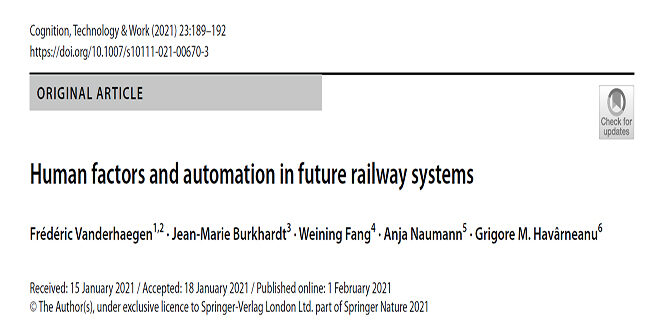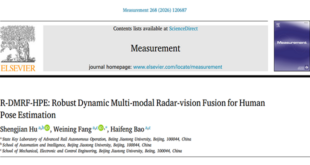Frédéric Vanderhaegen, Jean‑Marie Burkhardt, Weining Fang, Anja Naumann, Grigore M. Havârneanu
This special issue contributes to the achievement of challenges related to human factors and automation dedicated to future railway systems. It includes transverse research topics by considering several emerging trends as the design of learning systems, of grades of automation, of cooperative system, or of analysis approaches about feedback of experience. To do so, contributions are detailed in different railway organization levels as training, design, operation, or maintenance. There are based on field studies, on simulation environments or on accident reports. They reveal the value of taking the human into account in the control and supervisory loop for the design, the analysis and the evaluation of future railway systems. Humancentered automation can indeed make system more resilient to various risks and threats by including human contributions through different degrees of automation and modalities of human–machine interaction.
References:Frédéric Vanderhaegen, Jean‑Marie Burkhardt, Weining Fang, Anja Naumann, Grigore M. Havârneanu. Human factors and automation in future railway systems. Cognition, Technology & Work (2021) 23:189–192
 复杂系统人因与工效学研究所
复杂系统人因与工效学研究所

